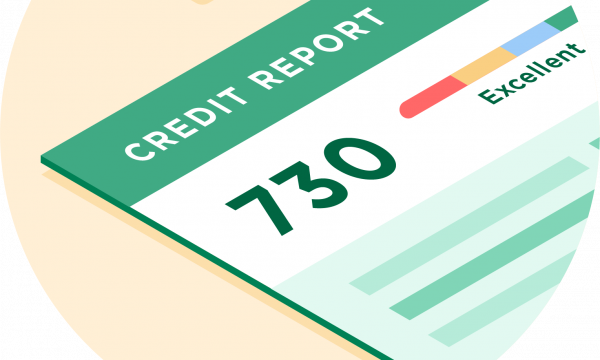Credit Score vs. Credit Report: What’s the Difference?
Credit reports are detailed histories of your credit use. Credit scores are calculated from your credit report info.

Many, or all, of the products featured on this page are from our advertising partners who compensate us when you take certain actions on our website or click to take an action on their website. However, this does not influence our evaluations. Our opinions are our own. Here is a list of our partners and here's how we make money.
When you apply for a credit card, apartment rental, mortgage or car loan, two things help would-be lenders assess the likelihood that you'll pay as agreed: your credit scores and credit reports.
Credit score vs. credit report
The difference between a credit score and a create report is that your credit report lists detailed information about your credit history. Your credit score is all of that report's data calculated into a simple number representing your creditworthiness.
Think of reports like a medical record, which lists facts such as symptoms and test results, and scores as the resulting diagnosis. Good credit scores are key to accessing financial products. Let's break it down:
» MORE: What is a good credit score?
Stress less. Track more.
See the full picture: savings, debt, investments and more. Smarter money moves start in our app.
Credit score definition
A credit score is a number that lenders use to evaluate how safe or risky you are as a customer. The kind most commonly used to make credit decisions is the FICO score, which comes in multiple versions, many of them specialty scores for products such as auto loans or credit cards. FICO's competitor, VantageScore, also is used in lending decisions. You can get a free credit score from VantageScore weekly at NerdWallet's site.
All credit scores are derived from information in your credit reports. The most important factors to consider when managing your credit score include:
- Your history of repayment, and whether you have derogatory marks for paying late or defaulting.
- How much money you owe compared to your credit limits, called credit utilization ratio.
- How often you have applied for credit recently, called "hard inquiries."
- How long you’ve had credit accounts, or your age of credit.
- The types of credit you have (the kind with fixed payments, like an auto loan, or variable payments, like a credit card).
» MORE: See our picks for the best credit cards
Your scores will fluctuate depending on your account activity. VantageScore and most versions of FICO range from 300 to 850. Scores of 690 or above are deemed “good” and 720 or above are considered “excellent.” The two scoring models look at the same factors, so if you have a good score on one, you'll probably have a good score on the other.
Your scores will fluctuate depending on your account activity. VantageScore and most versions of FICO range from 300 to 850. Scores of 690 or above are deemed “good” and 720 or above are considered “excellent.” The two scoring models look at the same factors, so if you have a good score on one, you'll probably have a good score on the other.
When you apply for a credit card or a loan, the lender will check your credit score to determine your eligibility. It's smart to monitor your score yourself so you'll have an idea of how a lender might size you up. This can be especially useful if you are looking to build your credit.
Just use the same version of the same score every time. It's like weighing yourself; using the same scale each time screens out slight variations due to equipment.
Stress less. Track more.
See the full picture: savings, debt, investments and more. Smarter money moves start in our app.
Credit report definition
A credit report is a comprehensive list of your lines of credit and payment history, but it doesn't contain your credit score. Three major credit-reporting companies — Equifax, Experian and TransUnion — compile the reports.
Credit reports often have many pages as they detail your accounts and how diligently you've paid off outstanding balances. Negative information such as repossessions or bankruptcies will appear on your credit report, too.
If you've never had credit accounts, you probably don't have credit reports yet. It’s important to establish a credit history because credit reports can be used to determine applicants’ eligibility for loans, credit cards, rentals, insurance policies and jobs.
Reports sometimes have errors, so it’s important to examine them carefully and dispute any mistakes you find with the company that issued the report. The fastest way to dispute is online, but you can also do it by phone or mail. Everyone is entitled to free credit reports from each of the three credit-reporting companies. You can get a free credit report weekly from NerdWallet.
🤓 Nerdy Tip
You can request your credit report in Spanish directly from each of the three major credit bureaus:· TransUnion: Call 800-916-8800.
· Equifax: Visit the link or call 888-378-4329.
· Experian: Click on the link or call 888-397-3742.
🤓 Consejo Nerdy
Usted puede solicitar una copia de su informe crediticio (gratis y en español) de cada una de las tres principales agencias de crédito:
· TransUnion: Llame al 800-916-8800.
· Equifax: Visite el enlace o llame al 888-378-4329.
· Experian: Haga clic en el enlace o llame al 888-397-3742.
Article sources
NerdWallet writers are subject matter authorities who use primary,
trustworthy sources to inform their work, including peer-reviewed
studies, government websites, academic research and interviews with
industry experts. All content is fact-checked for accuracy, timeliness
and relevance. You can learn more about NerdWallet's high
standards for journalism by reading our
editorial guidelines.
Related articles









